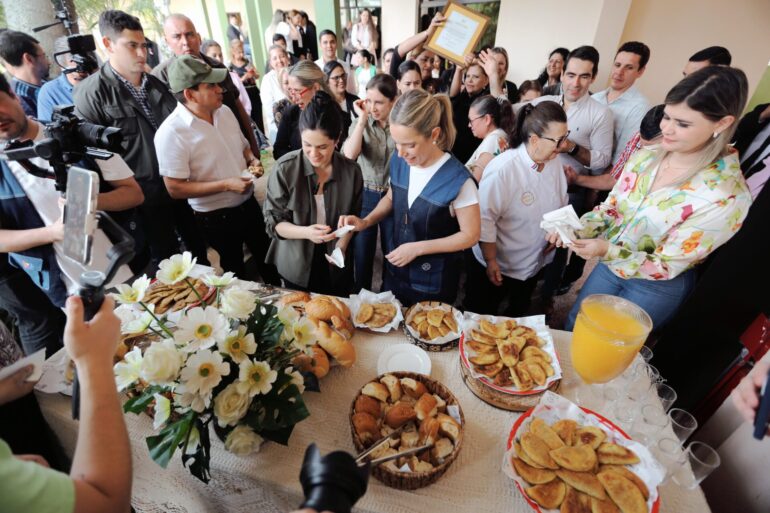The first lady, Leticia Ocampos, this week presented the declaration of National Intangible Cultural Heritage to the knowledge, techniques and traditional preparation methods of the mandi´o cake from the city of Coronel Oviedo in the department of Caaguazú. The National Secretariat of Culture, through Resolution SNC No. 755/2024, made this declaration official.
The presentation was made during an event held on Tuesday in the Caaguazú governorate, with the presence of the First Lady of the Nation, Leticia Ocampos; the governor of Coronel Oviedo, Marcelo Soto; and the Minister of Culture, Adriana Ortiz.
The SNC resolution includes knowledge, techniques and traditional production methods that are transmitted from generation to generation, within the scope of knowledge and uses related to nature and the universe.
This recognition will allow the pastel mandi´o to benefit from Law No. 3051/2006 on the Protection of Cultural Heritage, ensuring that the bearers of these cultural manifestations have the necessary means for their preservation. A government spokesperson said “The declaration reinforces the importance of preserving and promoting this intangible heritage as a key element of Paraguay’s cultural wealth.”
Ortiz said that it is a great privilege to declare the pastel mandi´o from Coronel Oviedo as Intangible Cultural Heritage of the Republic of Paraguay. She highlighted the importance of the great teachers who preserve the cultural heritage of the people through gastronomy.
She also expressed her joy at sharing this recognition with the First Lady and being able to deliver the declaration, which was an initiative of the Governor’s Office and all citizens.
The pastel mandi´o, characterized by its artisanal preparation from cassava and its link to local customs, has been part of the daily life of the inhabitants of Coronel Oviedo for generations.
The preparation of this dish preserves ancestral and particular techniques of the territory, such as the use of cassava ingredients and ground meat in a mortar, and a cooking method called “maimbé”, known in popular gastronomy.
This term refers to the process of cooking food on both sides in a pan slightly moistened with pork fat. Thus, the preparation of this culinary masterpiece “remains faithful to the techniques passed down from generation to generation by cooks,” says the National Secretariat of Culture.


